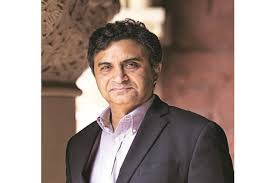Source: financialexpress.com
Artificial Intelligence (AI) is opening up the next phase of technological advances. Riding the AI wave, Google has started six AI-based research projects in India. These projects would focus on addressing social, humanitarian and environmental challenges in sectors such as healthcare, education, disaster prevention and conversation.
Google Research India, based in Bengaluru, will provide funding and computational resources besides supporting the efforts with expertise in computer vision, natural language processing, and other deep learning techniques, says Manish Gupta, director of Google Research Team in India. The research team will focus on two pillars: First, advancing fundamental computer science and AI research by building a strong team and partnering with the research community across the country and secondly, applying this research to tackle big problems in fields such as healthcare, agriculture, and education while also using it to make apps and services more helpful.
“Each of the projects is a collaboration between leading academic AI researchers and a nonprofit organisation with expertise in the respective area, with support from Google researchers, engineers and program managers,” he adds.
The IIT Delhi and Singapore Management University and Swasti project is about improving health information for high HIV/AIDS risk communities by applying AI to identify influencers among marginalised communities at high risk of HIV/AIDS contraction.
Researchers from IIT Madras led by Balaraman Ravindran and non-profit Armman will use AI to predict the risk of expectant mothers dropping out of healthcare programmes, to improve targeted interventions and increase positive healthcare outcomes for mothers and their babies.
The Singapore Management University and Khushibaby aims to improve consistency of healthcare information input by applying AI. Another project by Singapore Management University and Wildlife Conservation Trust is about predicting human-wildlife conflict in Maharashtra using AI.
While the Nanyang Technology University and Ashoka Trust for Research in Ecology and the Environment will work to improving dam and barrage water release using AI to help build early warning systems that minimise risk of disasters; AI4Bharat and IIT Madras and Storyweaver is working to support publishing of underserved Indian language content by building open-source input tools for underserved Indian languages to accelerate publishing of openly licensed content.
“Whether it is forecasting floods or detecting diabetic eye disease, we are increasingly seeing people apply AI to address big challenges. We believe that some of the biggest issues of our time can be tackled with AI,” explains Milind Tambe, director – AI for Social Good, Google Research Team in India. “This is why we have made research in AI for Social Good one of the key focus areas of Google Research India, the AI lab we started in Bengaluru last September.”


